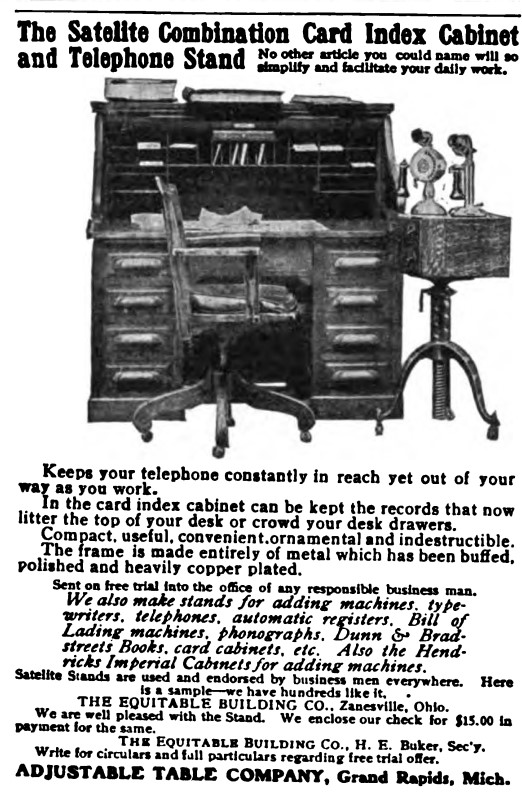Elaborate library classifications were either inapplicable or much 74too complicated and therefore unmanageable. Their applicationto business was out of the question. Something simple, easy toimderstand and easy to handle was required. This was foundin the numerical arrangement. The numerical classification inspite of its arbitrary character will always have this advantagethat it ensures accuracy with the least trouble, and this is stillmore the case where large quantities are handled. It was quitenatural therefore that this should be preferred for business purposes.As there are many sets of things arranged numerically, it isnecessary to distinguish one set from the other, so as to know towhat set a given number refers. This is done by affixing dis-tinguishing initials to the numbers, each class being assigned somecharacteristic initial of its own.
In describing classification schemes for card index-based business uses, Julius Kaiser indicated in 1908 that "elaborate library classifications were either inapplicable or much too complicated and therefore unmanageable." This is in part because of the standardization of the Dewey Decimal System, which may have provided efficiencies for library systems, but proved too rigid for the idiosyncrasies of a variety of businesses. Instead he describes an alpha-numeric system in which numbers provide simple means of finding while the initial alphabetic codes assign specific office-related classes (correspondence, press cuttings, catalogs, etc.) to the indexed materials.
